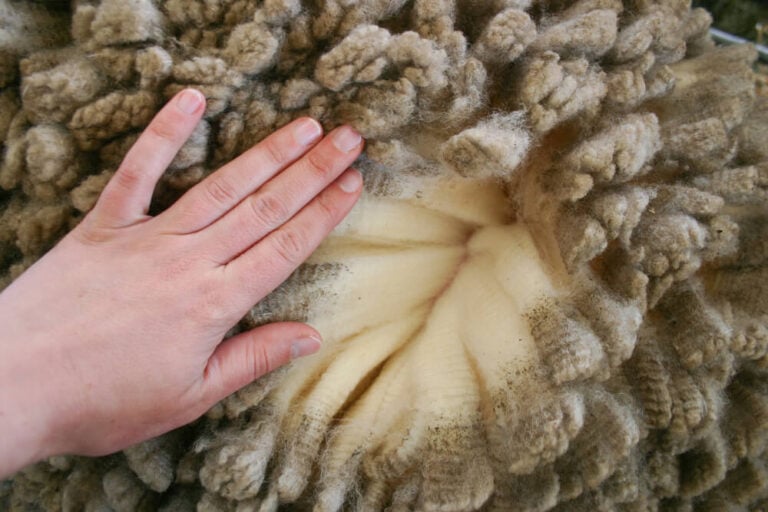Do Chickens Eat Ticks or Will Ticks Eat Your Chickens?
Welcome! This article contains affiliate links, meaning I get a commission if you decide to make a purchase through my links, at no extra cost to you.
It’s impossible to have a homestead without a healthy population of bugs and other critters. While some of these bring untold benefits to your veggie garden, others bring nothing but trouble.
Ticks are among those bugs that bring few benefits to their hosts, whether two-legged or four. In addition to Lyme disease, there are another 17 known problems that can result from a tick bite, many of which are on the increase.
New York State is experiencing such an upsurge in human cases of tick-borne anaplasmosis that researchers are warning it could become a “substantial public health threat” in years to come (source).
Environmental and climate changes have caused tick populations to explode and diversify but, it would appear that homesteaders are more prepared for this invasion than most, as we already have our armies of tick-eating superheroes at the ready.
Don’t miss our other article on the best farm birds to keep ticks in check!
How to Control Your Tick Population With Chickens

Backyard chickens take a search-and-destroy approach to pretty much anything that moves or even quivers, including adult ticks, flea eggs, and mosquito larvae.
Chickens eat ticks at an alarming rate, with the average chicken consuming around 80 ticks in under an hour!
The more you allow your chickens to roam, the more effective they’ll be at getting rid of ticks and the problems associated with tick-borne disease. Individual chickens with a more devil-may-care attitude to life may even pick ticks directly off your livestock.
A study published in Vet Parasitol in 1991 discovered that not only are chickens “natural predators of ticks,” but they also consume between 3-331 of the little critters in a single foraging session!
Not every breed of chicken is as excited about foraging for insects as the next. So if you want a flock to obliterate your tick population, pick ones like the hardy Ameraucana, which loves to hunt, or the resourceful and productive Brown Leghorn.

Even these breeds of chicken can’t compete with the natural foraging and pest control abilities of guinea hens.
According to a study published by the Wilson Ornithological Society “the presence of free-ranging guineafowl” could help “reduce [the] adult tick population,” and “the probability of contracting Lyme disease from adult ticks on lawns and lawn edges.” (source)
Neither guinea fowl nor chickens are particularly fussed about the variety of tick they feed on and will just as happily gulp down an American dog tick as a brown tick.
The bad news is, it’s not a one-way street. Ticks are just as keen on your feathered friends as chickens are on them.
What Happens When Ticks Eat Your Chickens Instead

Other than the previously-mentioned study from 1991, there’s little scientific evidence to support the idea of using chickens for tick control. That’s not the case when it comes to whether or not ticks suck the blood of your backyard birds, however.
As their name suggests, fowl ticks find chickens and other species of poultry irresistible, feasting on their unsuspecting victims as soon as night falls.
Fowl ticks thrive in nesting boxes and chicken coops, hiding in crevices during the day and feeding at night.
While fowl ticks don’t carry Lyme disease, they do carry the bacteria that causes Avian spirochetosis, which is a potentially life-threatening infection that causes weight loss, diarrhea, listlessness, and reduced egg production.
How to Prevent Poultry-Pursuing Pests
So far, we’ve established that chickens eat ticks, and ticks eat chickens, but does keeping a flock of chickens in your backyard have any other implications in terms of pest control and disease management?
It does, and once again, it’s not particularly good news.
Without proper storage, your chicken feed could lure rats and other disease-infested pets into the neighborhood.
Some years ago, rats chewed their way through our solid wooden feed bin so, we now keep our chicken feed in a metal trunk to discourage them.
Fortunately, we live in a rural setting but, in an urban environment, inviting rats and mice onto your property is liable to ostracize your neighbors and could result in increased breeding rates in local pests.
In some people’s eyes, it’s the chickens themselves that are the most dangerous pest in urban homesteads.
The Center for Disease Control, for example, holds the increase in backyard chicken owners directly responsible for the massive multi-state salmonella outbreak of 2018.
Cleanliness is key to creating a pest-free environment for your backyard chickens, and that involves washing your hands after handling your hens, storing feed correctly, and regularly cleaning your nesting boxes and coop.
You could, for example, enlist the help of cleaning tools like Manna Pro’s Poultry Protector All-Natural Chicken Coop Bug Spray.
Chickens Can Play a Role In Backyard Pest Control
Although chickens do eat ticks and eat a lot of them, there’s little scientific evidence to prove that they’re effective as anything other than a part of an integrated pest control strategy.
Hungry chickens will happily munch their way through hundreds of ticks in a single sitting, but even that may not have much impact, depending on the severity of the infestation.
While it would be unwise to rely only on chickens for your backyard pest control, they have a central role to play if managed correctly.
With a handful of guinea hens or Brown Leghorns running around, some diatomaceous earth, and a bottle of organic bug spray close at hand, you’ve got a good chance of ridding your property of ticks and reducing the risk of anyone on the property contracting a tick-borne disease.
Read More – The Best Chicken Breeds For Beginners!







